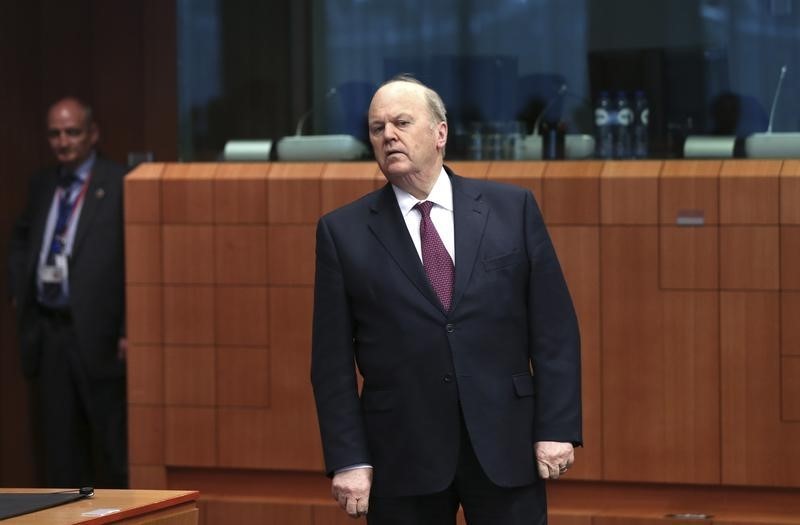DUBLIN (Reuters) - Ireland's central bank is making plans in case Britain leaves the European Union and its chief economist said on Wednesday that uncertainly over possible "Brexit" was enough to depress economic growth.
The United Kingdom is Ireland's biggest trading partner, with 10 percent of Irish workers reliant on those close economic ties, according to the government.
British Prime Minister David Cameron's plans to renegotiate ties with Europe, and then hold a referendum by the end of 2017, has thrown up difficulties for what Gabriel Fagan called "very initial stage" planning.
"We in the central bank and a number of other institutions in Ireland are now actively working the issue and the implications of a possible Brexit on the Irish economy," Fagan told a news conference.
Fagan did not name the other institutions but Ireland's debt agency recently published a report on the possible impacts, saying Irish trade, especially agricultural, would suffer.
Finance Minister Michael Noonan has asked his department to present him with an assessment of the possible referendum outcomes, according to minutes of an executive board meeting published on his ministry's website last week.
The government has also raised concerns over the implications for peace in the British province of Northern Ireland.
"The very risk of a Brexit raises uncertainty, not just for us but for investors and companies. Uncertainty itself will tend to depress growth so people will postpone investment or FDI (foreign direct investment) decisions," Fagan said.

The bank raised its forecasts for the economy on Wednesday, predicting expansion of more than 4 percent for 2015 and 2016 after faster growth than any other European country last year.